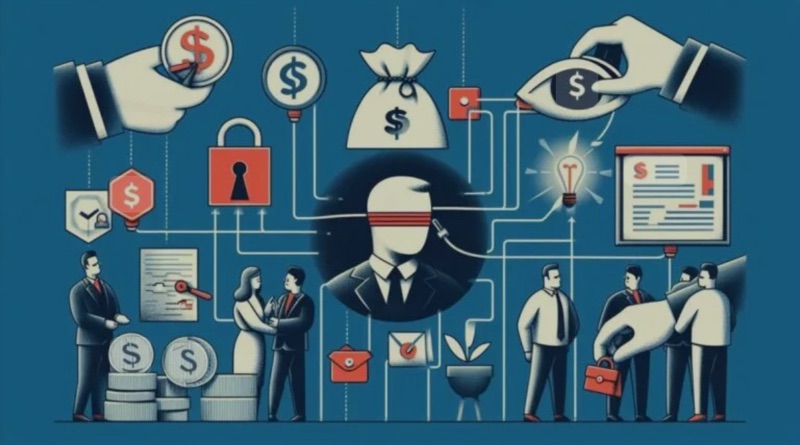
The Hidden Trust: How Your Name Became a Financial Asset Without Your Consent
By Devon T. White
Most people believe their name is just… their name. But in the complex web of legal and financial systems, that name—specifically when it appears in ALL CAPITAL LETTERS—represents something far more than your identity. It represents a trust, one that may have been created by the government without your knowledge or consent.
Here’s the disturbing part: every time you are charged with a crime, that “charge” isn’t just a legal accusation—it’s also a claim against that trust, a financial obligation. In other words, a criminal case is not only about liberty—it’s about money.
The Attorney’s Hidden Duty
Every attorney who represents you has a fiduciary duty—a legal and ethical responsibility—to disclose any and all financial obligations that the opposing party (such as the District Attorney) has filed against your trust. This duty exists so that you, the trust’s beneficiary, can respond appropriately and “perform” on the obligation if you choose.
But across the country, public defenders and private attorneys alike are failing to disclose this information. They remain silent while your trust is being financially encumbered in court proceedings. This silence is not just neglect—it’s a breach of fiduciary duty.
The Consequence of Silence
When you don’t know about a financial obligation, you can’t address it. In the legal and financial world, failing to respond is called a default. And default has serious consequences—both in contracts and in criminal prosecutions.
In practical terms, this default can pave the way for your conviction and incarceration. People aren’t just in prison because of guilt or innocence—they’re also there because their trust, their name, was put into default.
The Bigger Picture
If this sounds like a conspiracy theory, remember: the U.S. legal system is deeply intertwined with commercial law. Bonds, trusts, and financial instruments are quietly at work behind the scenes in nearly every courtroom. Whether you call it a “commercial system” or “hidden ledger,” the fact remains—money moves every time someone is arrested, charged, convicted, or incarcerated.
This isn’t about escaping accountability for wrongdoing—it’s about demanding full transparency from the legal system. If attorneys disclosed the full financial context of every case, countless people could make informed decisions that might change the outcome of their trials.
The Call to Action
The public deserves to know:
- What financial claims are being made against their name in court?
- Why aren’t attorneys explaining the commercial side of the justice system?
- How can people reclaim control over their legal identity and trust?
Justice isn’t just about verdicts—it’s about transparency. Until the fiduciary breach is addressed, the revolving door of incarceration will continue spinning, fueled by hidden financial obligations against trusts no one knew they had.
SIDEBAR: What’s the “ALL CAPS NAME” and Why Does It Matter?
Most people never notice it—but when your name appears on a driver’s license, court papers, or a birth certificate in ALL CAPITAL LETTERS, it’s not just for style. In certain interpretations of commercial and legal practice, this “ALL CAPS NAME” is treated as the name of a legal entity—a separate “corporate” or “trust” version of you.
Here’s the breakdown in plain English:
- The Birth Certificate Trust – Some claim that when you’re born, the government creates a trust account in your name. This trust can be linked to bonds and financial instruments.
- Charges Are Claims – In this view, a criminal charge isn’t just about law—it’s a financial claim against that trust.
- The Attorney’s Role – Your lawyer is supposed to tell you if such a financial obligation exists so you can respond before you “default.”
- Default = Loss – If you don’t address the obligation, the system treats it as if you’ve agreed to it. That “default” can be part of what allows the court to rule against you.
Why You’ve Never Heard of It:
Most people—and even many attorneys—operate strictly within the criminal law framework and never discuss the underlying commercial side. Whether you believe this is deliberate concealment or simply ignorance, the result is the same: people lose both liberty and potential financial rights without ever knowing the full picture.


Comments
Post a Comment